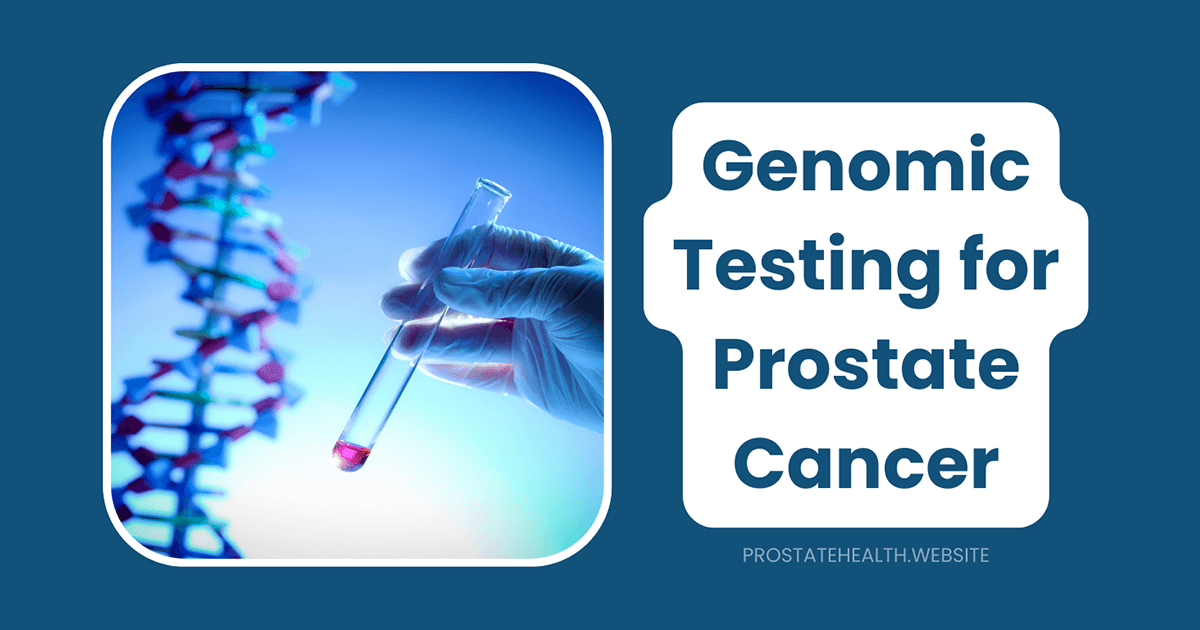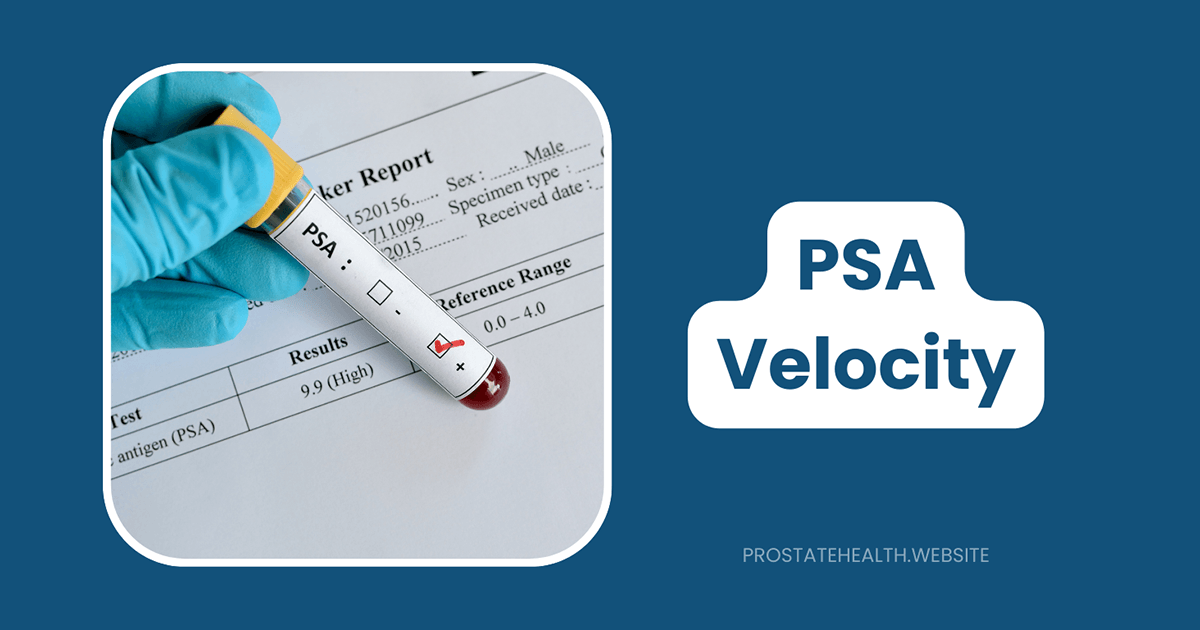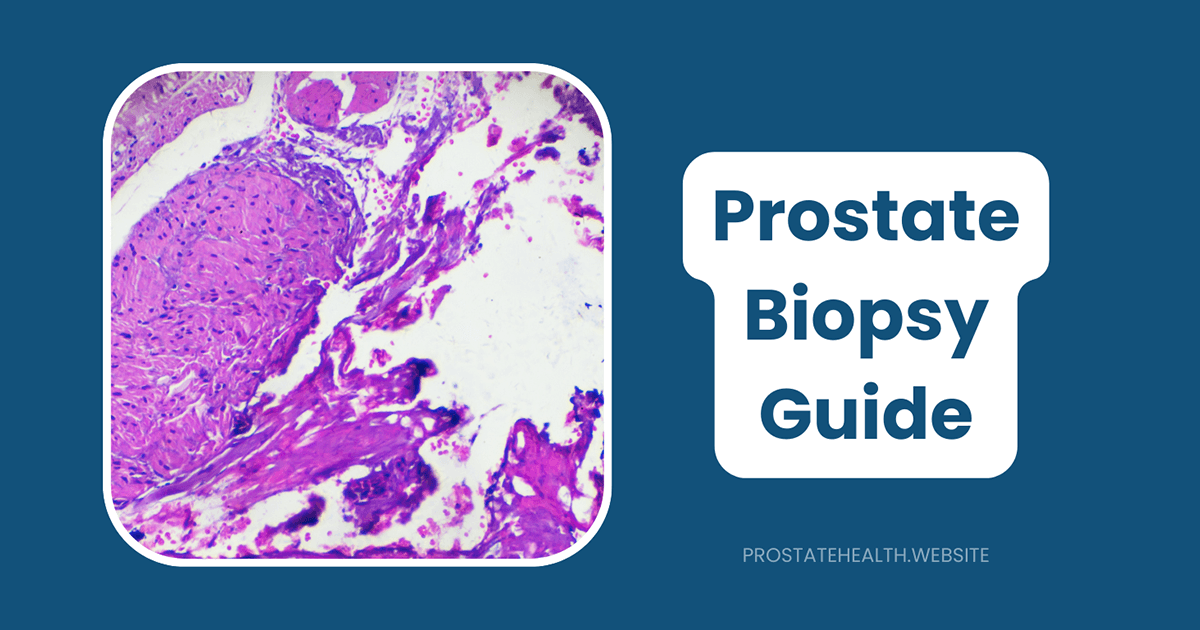Questions to Ask Your Doctor About Your Prostate Cancer Diagnosis

Receiving a prostate cancer diagnosis can feel overwhelming. In that moment when your doctor delivers the news, your mind might go blank or race with thoughts, making it difficult to process information or ask the right questions.
As someone who’s guided hundreds of men through their prostate cancer journeys, I’ve seen how crucial those initial conversations with your healthcare team can be. The questions you ask—and the answers you receive—will form the foundation of your understanding and help you make informed decisions about your care.
This guide provides a comprehensive list of questions to ask at various stages of your prostate cancer journey. Consider bringing this list to your appointments, along with a notebook or a trusted friend or family member to help record the answers. Remember, there are no “stupid” questions when it comes to your health, and a good doctor will welcome your engagement in your care.
Understanding Your Diagnosis
The first step is gaining clarity about exactly what you’re facing. These questions will help you understand the specifics of your diagnosis:
About Your Cancer’s Characteristics
- What is my Gleason score, and what does it mean?
- Is it 3+3=6, 3+4=7, 4+3=7, 8, 9, or 10?
- What Grade Group does this place me in (1-5)?
- How aggressive is my cancer based on this score?
- What is my PSA level?
- Is this considered low, moderate, or high for my age?
- How has my PSA changed over time?
- What does the pattern of PSA change suggest about my cancer?
- What is the clinical stage of my cancer?
- Is it confined to the prostate (T1 or T2)?
- Has it extended beyond the prostate (T3 or T4)?
- Is there evidence of spread to lymph nodes (N1) or other parts of my body (M1)?
- What risk group does my cancer fall into?
- Very low, low, favorable intermediate, unfavorable intermediate, high, or very high risk?
- What does this risk classification mean for my prognosis and treatment options?
- How much of my prostate contains cancer?
- How many biopsy cores were positive for cancer?
- What percentage of each core contained cancer?
- Is the cancer on one side of my prostate or both sides?
- Were there any concerning features in my biopsy results?
- Was there evidence of perineural invasion (cancer around nerves)?
- Were any aggressive patterns like cribriform growth present?
- Was there evidence of intraductal carcinoma?
About Additional Testing
- Do I need any additional tests to better understand my cancer?
- Would an MRI provide more information about the extent of my cancer?
- Should I have a bone scan or CT scan to check for spread?
- Would genomic testing of my biopsy tissue (like Decipher, Prolaris, or Oncotype DX) help guide treatment decisions?
- Should I get a second opinion on my pathology?
- Would you recommend having my biopsy slides reviewed by a specialized genitourinary pathologist?
- How might this change my diagnosis or treatment plan?
- Should I consider genetic testing?
- Given my family history, am I at risk for hereditary prostate cancer?
- Would genetic testing influence my treatment options?
- Should my family members be screened earlier based on my diagnosis?
About Your Prognosis
- What is my prognosis?
- What is the natural history of my type of prostate cancer if left untreated?
- What is my life expectancy with and without treatment?
- What is the likelihood that my cancer has already spread beyond what we can detect?
- How urgent is my situation?
- Do I need to make treatment decisions immediately, or do I have time to consider my options?
- What are the risks of taking a few weeks or months to make a decision?
As Robert, a 62-year-old patient, shared with me: “When I was diagnosed, I was so shocked that I just nodded along with everything my doctor said. It wasn’t until I went home and did some research that I realized I didn’t even know my Gleason score or stage. At my follow-up appointment, I brought a list of questions and a friend to take notes. The information I gathered completely changed my understanding of my diagnosis and the treatment path I ultimately chose.”
Exploring Treatment Options
Once you understand your diagnosis, you’ll want to explore all available treatment options. These questions will help you gather comprehensive information:
About Active Surveillance
- Am I a candidate for active surveillance?
- Why or why not?
- What factors make me a good or poor candidate?
- What would active surveillance involve in my case?
- If I choose active surveillance:
- How often will I need follow-up PSA tests?
- How often will I need repeat biopsies or MRIs?
- What changes would indicate that we should switch to active treatment?
- What percentage of men with my risk profile eventually need treatment?
About Surgery (Radical Prostatectomy)
- Am I a candidate for surgery?
- Why or why not?
- Would you recommend open, laparoscopic, or robotic-assisted surgery for me?
- Would you recommend nerve-sparing surgery in my case?
- If I choose surgery:
- What is your experience with this procedure? How many do you perform annually?
- What is the likelihood that all cancer will be removed?
- Will my lymph nodes be removed? Why or why not?
- What is the typical hospital stay and recovery time?
- When can I return to work and normal activities?
About Radiation Therapy
- Am I a candidate for radiation therapy?
- Why or why not?
- Would you recommend external beam radiation, brachytherapy (seed implants), or a combination?
- Would you recommend proton therapy, and why?
- If I choose radiation:
- How many treatments will I need and over what time period?
- Will I need hormone therapy along with radiation? For how long?
- What is the protocol for follow-up after radiation?
- Can radiation be repeated if the cancer returns?
About Other Treatment Options
- Are there other treatment options I should consider?
- Am I a candidate for focal therapy (HIFU, cryotherapy, etc.)?
- What about newer treatments or approaches?
- Are there relevant clinical trials I should consider?
- If I have advanced prostate cancer:
- What hormone therapy options are available?
- What is the role of chemotherapy in my case?
- Are there targeted therapies or immunotherapies that might help me?
- What is the typical sequence of treatments for my stage of cancer?
Comparing Options
- How do the treatment options compare for someone with my specific diagnosis?
- What are the cure rates for each option in my case?
- How do the side effect profiles differ?
- What is your recommendation and why?
- If this were you or your family member, what would you choose?
- What happens if the initial treatment doesn’t work?
- What are my second-line treatment options?
- How will we know if treatment has been successful?
- How often will I need follow-up tests after treatment?
As Michael, a 58-year-old with intermediate-risk prostate cancer, told me: “My urologist immediately recommended surgery, but when I asked about other options, he seemed dismissive of radiation therapy. I decided to consult with a radiation oncologist as well, which gave me a much more balanced view of my options. Ultimately, I chose radiation, which worked well for me with minimal side effects. I’m glad I took the time to explore all my options.”
Understanding Potential Side Effects
Prostate cancer treatments can affect your quality of life in significant ways. These questions will help you understand and prepare for potential side effects:
Urinary Function
- How will treatment affect my urinary function?
- What percentage of patients experience urinary incontinence after this treatment?
- Is this typically temporary or permanent?
- What can be done to manage or treat urinary problems if they occur?
- How soon after treatment might urinary problems improve?
Sexual Function
- How will treatment affect my sexual function?
- What percentage of men experience erectile dysfunction after this treatment?
- Does this typically improve over time?
- What treatments are available for erectile dysfunction if it occurs?
- Will treatment affect my ability to ejaculate or have orgasms?
- Will treatment affect my fertility? Should I consider sperm banking?
Bowel Function
- How will treatment affect my bowel function?
- What percentage of patients experience bowel problems after this treatment?
- Are these typically temporary or permanent?
- What can be done to manage or treat bowel problems if they occur?
Other Quality of Life Concerns
- What other side effects should I be aware of?
- Will I experience fatigue during or after treatment?
- Will treatment affect my hormonal balance or cause hot flashes?
- Might I experience cognitive changes or mood alterations?
- How will treatment impact my overall energy and strength?
- What can be done to minimize side effects?
- Are there pre-treatment preparations that can reduce side effects?
- Are there medications or procedures (like SpaceOAR hydrogel for radiation) that can protect normal tissues?
- What role do pelvic floor exercises play before and after treatment?
As James, a 65-year-old who underwent radical prostatectomy, shared: “I wish I had asked more detailed questions about incontinence before my surgery. My doctor mentioned it as a possible side effect, but I didn’t understand how common it was or how long it might last. Had I known, I would have started pelvic floor exercises before surgery and been better prepared mentally for the recovery process.”
Practical Considerations
Beyond the medical aspects, there are practical matters to consider:
Logistics and Timing
- What is the timeline for treatment?
- When would treatment begin?
- How long will the entire treatment process take?
- How many hospital or clinic visits will be required?
- Will I need someone to drive me to appointments or help at home?
- How will treatment affect my daily life?
- Will I be able to work during treatment?
- What activities should I avoid during and after treatment?
- When can I resume exercise, sexual activity, and other normal activities?
Financial Considerations
- What are the financial aspects of treatment?
- Is this treatment covered by my insurance?
- What out-of-pocket costs should I anticipate?
- Are there financial assistance programs available?
- How do costs compare between different treatment options?
Support and Resources
- What support resources are available to me?
- Are there support groups for men with prostate cancer?
- Do you recommend any specific books, websites, or organizations?
- Is there a patient navigator or social worker who can help me coordinate care?
- Are there nutrition or exercise programs specifically for prostate cancer patients?
Questions About Your Healthcare Team
Understanding who will be involved in your care is important:
- Who will be coordinating my overall care?
- Will you be my main point of contact throughout treatment?
- How do I reach you or someone on your team with questions or concerns?
- Should I consult with other specialists?
- Should I see a urologist, radiation oncologist, and/or medical oncologist?
- How will communication work between different members of my healthcare team?
- Would my case benefit from review by a multidisciplinary tumor board?
- What is your experience with my type of cancer?
- How many patients with my condition do you treat annually?
- What are your outcomes for patients similar to me?
- Do you specialize in prostate cancer specifically?
Questions About Lifestyle and Complementary Approaches
Many men want to know what they can do beyond conventional treatment:
- How can I optimize my health during treatment?
- Are there dietary changes you recommend?
- What type and amount of exercise is appropriate before, during, and after treatment?
- Should I take or avoid certain supplements?
- Are there complementary approaches that might help?
- What is your opinion on integrative medicine approaches for prostate cancer?
- Can approaches like acupuncture, meditation, or yoga help manage side effects?
- Are there any complementary approaches I should avoid?
Questions for Specific Situations
Depending on your specific situation, you might have additional questions:
For Older Men or Those with Other Health Conditions
- How does my age and overall health affect treatment recommendations?
- Given my other health conditions, what is the most appropriate approach?
- Is there a chance that I might not need treatment because other health issues are more pressing?
- How do we balance prostate cancer treatment with management of my other conditions?
For Men with Recurrent Cancer
- Why did my cancer come back?
- What does recurrence mean in my case?
- What are my treatment options now?
- How successful are treatments for recurrent prostate cancer?
- What is my prognosis now that the cancer has returned?
For Men with Advanced or Metastatic Disease
- What is the goal of treatment at this stage?
- Are we aiming for cure or control of the disease?
- What is the typical progression of advanced prostate cancer?
- What treatments can help extend my life and maintain its quality?
- What clinical trials might be appropriate for advanced disease?
Questions to Ask Yourself
Beyond questions for your doctor, there are important questions to ask yourself:
- What are my priorities and values?
- How do I weigh quantity of life versus quality of life?
- Which potential side effects concern me most?
- How aggressive do I want to be in treating my cancer?
- What role do I want to play in decision-making about my care?
- What support do I need?
- Who should I tell about my diagnosis?
- Who can help me process this information and make decisions?
- What practical support will I need during treatment?
- How can I best prepare myself emotionally for this journey?
Making Your Decision
After gathering information, you’ll need to make treatment decisions:
- How will I know I’m making the right decision?
- What factors should weigh most heavily in my decision?
- Is there additional information I need before deciding?
- How have other patients in my situation made this decision?
- What is the timeline for making this decision?
- What if I’m still uncertain?
- Would a second opinion be helpful at this point?
- Are there decision aids or tools that can help me weigh options?
- Can I speak with other patients who have faced similar decisions?
Conclusion: Becoming an Empowered Patient
Asking thorough questions is not about challenging your doctor’s expertise—it’s about becoming an informed and engaged partner in your care. Research consistently shows that patients who actively participate in their healthcare decisions report greater satisfaction and often have better outcomes.
Remember that you don’t need to ask all these questions in one appointment. Prioritize the ones most important to you, and don’t hesitate to schedule additional consultations as needed. Many men find it helpful to meet with different specialists (urologist, radiation oncologist, medical oncologist) to get multiple perspectives before making treatment decisions.
As Thomas, a 70-year-old prostate cancer survivor, told me: “The questions I asked—and the answers I received—gave me confidence that I was making the right choice for me. My doctor didn’t just tell me what to do; he helped me understand why certain approaches made sense for my specific situation. That partnership approach made all the difference in my cancer journey.”
Your prostate cancer diagnosis is the beginning of a journey, not the end of one. By asking thoughtful questions, you lay the groundwork for informed decisions and active participation in your care—both of which are essential elements of successful cancer treatment.
Have you recently been diagnosed with prostate cancer? What questions were most helpful in your conversations with your healthcare team? Share your experience in the comments to help other men navigating this challenging time.






